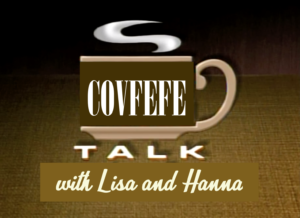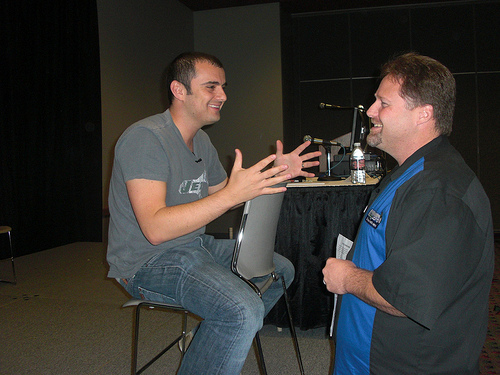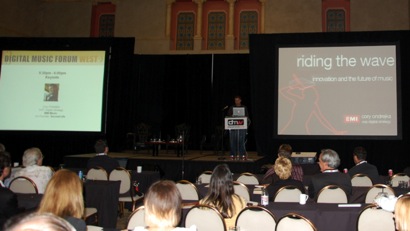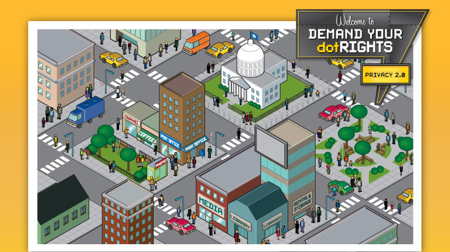From “Covfefe Talk” to Covid 19 January 18, 2021
Posted by lborodkin in : Ethics , add a comment
It seems almost quaint to think in terms of the self-regulating nature of the attorney profession in light of the January 6, 2021 armed insurrection on the US Capitol, and the need to de-platform the President of the United States from the major social media products, Twitter and Facebook. However, these events exposed major fault lines in the way the general public view the operation of the First Amendment. Many claimed the right to be heard on private commercial web-based social media products. In such times, who would the public trust to explain the boundaries of such legal rights? Attorneys — one would hope.
In March 2019, I presented a Continuing Legal Education panel at the SxSW festival with Hanna Shafran on social media ethics for lawyers. Entitled “Covfefe Talk: Social Media Ethics Rules for 2019,” (audio replay can be found here), Hanna and I ran through a number of ethics scenarios presented by attorneys’ use of various forms of social media. In 2019, how attorneys should deal with online disinformation (TLDR for attorneys: don’t) seemed more like esoteric trivia rather than a potentially life-threatening epidemic.
Yet it has been repeatedly reported, with increasing levels of alarm, that the spread of online disinformation represents a chronic threat to the health and safety of the general public. For most of 2020, I was concerned about the spread of dangerous anti-scientific conspiracy theories with regard to Covid-19. But in early 2021, an even more shocking rupture in occurred. The failure of the three branches of the US government to operate as a check and balance on the spread of disinformation, in turn fueled the Capitol riots. The fact that Facebook and Twitter were able to do what Congress and the US Courts could not (stop the President of the United States from spouting dangerous conspiracy theories in real time) should cause every attorney in America to ask, “How did we get here?” and “How can we guard against the inevitable repetition of such events?”
The legal profession, in fact, has a number of ethics rules and procedures in place to monitor and discipline such lapses as would cause society to lose faith in the legal profession, as Hanna and I discussed at SxSw. It is the duty of the members of our profession to know and use these ethics rules in these times. The recent proceeding to disbar Rudy Guiliani will be watched closely. However, it is only a start. To paraphrase Edmund Burke, the only thing necessary for the triumph of evil is for good people to do nothing. We should start by knowing the ethics rules, applying them scrupulously, and calling in appropriate circumstances for the application of those rules to deter abuse of the public trust.
An alarming number of highly-placed members of our government with extremely sophisticated and prestigious legal training nonetheless participated in an ideological assault on our very form of democracy by objecting to the election results. They know better. As lawyers, we cannot just look the other way. It is essential to the survival of our profession that we, as lawyers, call out their wrongdoing and live these principles ourselves. Otherwise, why should the public trust us?
G-Male, Fake Tony LaRussa and $3M of Pony Stars: Slides from Online Privacy 101 October 20, 2011
Posted by lborodkin in : Uncategorized , 1 comment so farAt the annual California State Bar Meeting on September 17, 2011, I had the honor of presenting a CLE panel on “Online Privacy 101: Who’s Watching You?” with Ian Ballon (who wrote the treatise on Internet Law), and the co-chairs of the state bar Business Section’s Cyberlaw Committee, Robert Hawn and Tony Vittal.
My section of the presentation covered “Social Networks.” To illustrate the good and bad of the overshared generation, I led off with “G-Male,” a parody of what a virtual boyfriend constructed from all the information Google has collected about you might be like:
My part of the presentation covered some basic legal concepts that will only grow in significance as social networks continue to infuse every aspect of our lives, from our most private messages to the daily news headlines. These topics are:
1. Misappropriation of Name and Likeness Rights to control the use of one’s name and likeness become increasingly important as countless online community startups try to construct business models based on building social networks and monetizing against them. I discussed the 2007 case of Susan Chang v. Virgin Mobile USA, from the Northern District Texas (documents available at Justia.com). The Chang case is a good illustration of the difference between intellectual property rights (here, copyright that was waived through opting in to Creative Commons) and rights of publicity (here, the identifiable image of a little girl that was the subject of the picture used for Virgin Mobile advertisements without permission).
2. Impersonation Two fundamental schools of thought about Internet culture inevitably clash regarding impersonation. One school of thought holds that anonymity is sacred on the Internet, and that users should be able to construct a coherent (or even ephemeral) online identity. There are valid use cases for this, such as for victims of abuse or members of alternative communities that might otherwise be harassed. The other school of thought holds that online life is an extension of real life, and that it is important to verify each user’s identity to hold users accountable for their online actions.
I discussed Tony LaRussa’s case against Twitter (Good luck to you in the World Series, Tony) and the California Legislature’s new addition to the California Penal Code for malicious impersonation online, Penal Code Section 528.5.
3. Social Gaming and the Children’s Online Privacy Protection Act (COPPA)
It’s really, really important to know the laws about collecting user’s private information, especially in the case of children. As demonstrated by Playdom and Howard Mark’s May 2011 $3 million dollar settlement with the FTC. That’s a lot of Pony Stars.
4. Cyberbullying
Unfortunately, you can tell a lot about what people in a society are doing by looking at what they have outlawed. In July 2011, California amended Education Code 32261(a) to specify that acts of bullying through social networks qualify as bullying and can be disciplined in the schools. Which is a good opportunity to remind you that October is Bullying Prevention Month.
5. Computer Fraud and Abuse Act (CFAA)
This is such a broad law that it has recently been used in a variety of unexpected ways. I discussed the case of Pulte Homes v. Laborers’ International Union, in which the 6th Circuit upheld the employer’s claim that a union’s campaign to bombard and disable the employer’s email and telephone servers was an actionable violation of the Computer Fraud and Abuse Act.
6. Data Scraping and the Future of Online Reputation
There is an explosion of new data scraping sites vying to collect all your online information and push it to the top of search results for your name. I tested a few of them before the presentation to see how accommodating they were with requests to remove data. This promises to be a cutting-edge area for legal development, as the first two audience questions were about online reputation repair companies such as Reputation Defender and what, if anything, can be done about negative reviews on ratings sites.
Slides of the presentation below:
Radio Free Internet: Social Networks, Bill of Rights and the Fourth Amendment June 20, 2010
Posted by lborodkin in : Uncategorized , add a commentWhile I was at the Computers, Freedom and Privacy conference in San Jose, California, this week, Peter B. Collins asked me to talk on his Internet radio program about the Social Network User’s Bill of Rights we were hammering out at the conference.
To listen to my guest spot on the Peter B. Collins radio show, click below.
***Peter B. Collins Show Episode 142***
Peter asked great, insightful questions from outside the social media bubble.
1. What are reasonable expectations of privacy for Google search queries?
2. Are Yelp‘s review ranking algorithms a breach of an implied agreement with businesses?
3. Is Facebook developing a cottage industry in providing user data at $500 per subpoena?
4. Where are the courts on compelled disclosure of IP addresses?
5. Is Facebook heading for a tragedy of the commons when used for self-promotion?
6. Have social media policies eroded traditional constitutional protections in executing search warrants?
Peter’s toughest questions were about the intersection of constitutional law and social media Terms of Service, particularly Fourth Amendment issues.
Peter also asked for a recap of the seven principles in “We, the Users: Facebook User’s Bill of Rights” I wrote with Professor Jack Lerner of USC Law School for the San Francisco Chronicle.
Thanks, Peter!
Beautiful Pixel Art from the ACLU of Northern California’s dotrights.org project
In its Darkest Hour, Seeing the Good in Facebook May 18, 2010
Posted by lborodkin in : Uncategorized , 2commentsI’ve been skeptical of Facebook from the moment it tricked me into joining.
Lately, I’ve been surfing the wave of Schadenfreude at its recent fall from grace. I even co-wrote an op-ed for the San Francisco Chronicle that took some major digs at it.
However, I won’t be quitting. Something happened over the weekend that reminded me of the positive power of Facebook. A friend died. His name was David Lee.
Here is David, laughing and smiling just before he left for Costa Rica:
David Memorial from VidFu on Vimeo.
David was one of the best guys I have ever met. The video is from a business he was supposed to launch right after he came back from Costa Rica. He died in a car crash on that vacation.
It’s very much in character that Dave made this video. He told me, “There are a lot of people that talk about doing things, but I’m someone who does them.”
He was going to launch that business on time no matter what. I had told him it might be fun to get some comedy actress-writers I knew to be in the videos. But the actress-writers wanted to sit down and chat about it over coffee first. Their coffee date day was the day of the shoot. So he decided to star in it himself.
In business, David personified Guy Kawasaki’s principle of “Be a mensch.” His inner haggler sometimes battled with his innate generosity, but the generosity won out. Every long afternoon and late night we worked in K-town coffee shops, he picked up the check. When it was dark, he insisted on walking me to my car.
One night we had a heart-to-heart about why Koreans can be so dramatic. It’s like the Armenians, he said. Koreans endured a lot of suffering in their history.
I learned of David’s death from a Facebook event invitation. At first I mistook “Farewell to David Lee” for a going-away party. It dawned on me what might have happened. We were sending him off in farewell at the beach.
Like all of Dave’s friends, the friend who invited me was warm and outgoing. We had connected pretty quickly on Facebook.
When Dave’s friends started posting pictures and stories on his Facebook wall, I had some context to understand how loved he was. The range of emotions from his connections was comforting too. Everyone was dealing in their own way. It helped make it more real, going through it in real time, and not alone.
And this was possible because David and his friends had shared so much already. This is a case where in the moment you don’t care if the pictures are private or public. The point is to remember and share our life with David.
Now I get the half of the argument that is defending Facebook. If you post something you probably want to share it at some level. Even in the years I posted under an alias on an obscure Web community, I did.
As an Internet and media lawyer, I still think the Facebook privacy scam is evil. I think it sets a terrible example for business ethics. I still advocate for people to consider alternatives like Twitter, Flickr and Evite.
But as a user, I was really glad for Facebook this week. I’ll protest the privacy changes by abstaining on June 6, but I won’t quit.
If I had, I would have missed out on a little of David. I had too little time with him as it is.
3 Pithy Thoughts from 2008 January 5, 2009
Posted by lborodkin in : Uncategorized , 8commentsHere are props to the authors of three pithy sound bites that shaped my use of social media in 2008.
1. “Don’t drink the haterade.”

—Gary Vaynerchuk, Keynote at Blog World Expo ’08.
Gary Vaynerchuk (aka “Gary Vee”) of Wine Library TV gave a captivating and inspiring keynote address at Blog World Expo in Las Vegas in September 2008. If you can find a recording of it, please watch and link to it. Other advice from Gary is that if you’re going to podcast, update every day, or try to do so at least three times a week. That’s what you need to do to keep people’s attention. Another point he made is to give away as much as you can and still make a profit.
What Gary was referring to with the “Haterade” comment is his advice not to waste energy envying, hating, or criticizing those who are successful. Don’t turn away from others with a huge following merely because they are successful. Join them. Try to learn what works for them. Don’t drink the Haterade. Just don’t.
2. The secret to Twitter is who you follow, not who follows you.

—Robert Scoble, from The Secret to Twitter, Scobleizer, March 23, 2008.
(photo of Twitter/No Twitter stickers from SummerMash LA)
This neat little article wraps up what is so cool about Twitter. Follow because you want to hear about things you don’t know. Never mind the numbers.
3. “The Asteroid is coming.”

—Cory Ondrejka, Keynote at Digital Music Forum West.
This little sound bite was taken from Corey Ondrejka’s keynote speech at Digital Media Wire‘s Digital Music Forum West last October. This conference was extraordinary in that it actually got leaders from clashing industries — the recording industry and the consumer electronics industry — on stage, face to face, frankly debating their mutually incompatible business models with no punches pulled. (Incidentally, it was the only time I ever heard someone answer the question of where the money from RIAA settlements goes. The answer, according to the panelist from one of the major record labels, is that it is split 50/50 with the artists after costs are taken off the top.)
Corey Ondrejka asked people in the audience to raise their hands if they know anyone who has an assistant printing out their emails, i.e., the dinosaurs. He was making a point about business models. “The asteroid is coming.”
Who shifted your paradigms in 2008?





 del.icio.us
del.icio.us flickr
flickr LinkedIn
LinkedIn Twitter
Twitter


